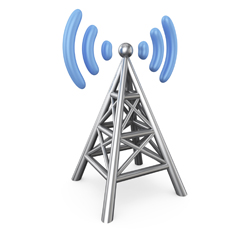More energy-efficient cellular radio networks
Current mobile networks were not planned to be energy efficient and they consume more energy than is needed to satisfy user demand. Radio access networks are often responsible for most of the total power consumed by mobile network operators. The GREENNET project worked to increase the energy efficiency of radio networks. Developments in such areas will help the EU achieve ambitious energy and climate change objectives for 2020. Consortium partners developed energy-efficient equipment and improved network operations and radio deployment efficiency by operating just as much of the radio network as was needed. Smarter use of existing and new radio equipment led to reductions in energy consumption, as did adapting the use of the radio infrastructure to reflect current demand. This included putting the unnecessary parts of the radio access network into sleep mode or temporarily switching them off to reduce power consumption. Project partners created algorithms to map network key performance indicators and to form part of the Energy Efficiency Optimiser (EEO). The EEO was designed as an automatic system capable of proposing and executing actions, such as the times to switch on or off parts of the radio network, resulting in energy savings. GREENNETS work will enable mobile network operators to meet both commercial and sustainability targets in Europe and the rest of the world. Energy costs account for half of a mobile operator's operating expenses. Solutions supporting improved energy efficiency are therefore not just beneficial for the environment, they also make good business sense.
Keywords
Mobile operator, radio network, power consumption, energy efficiency







